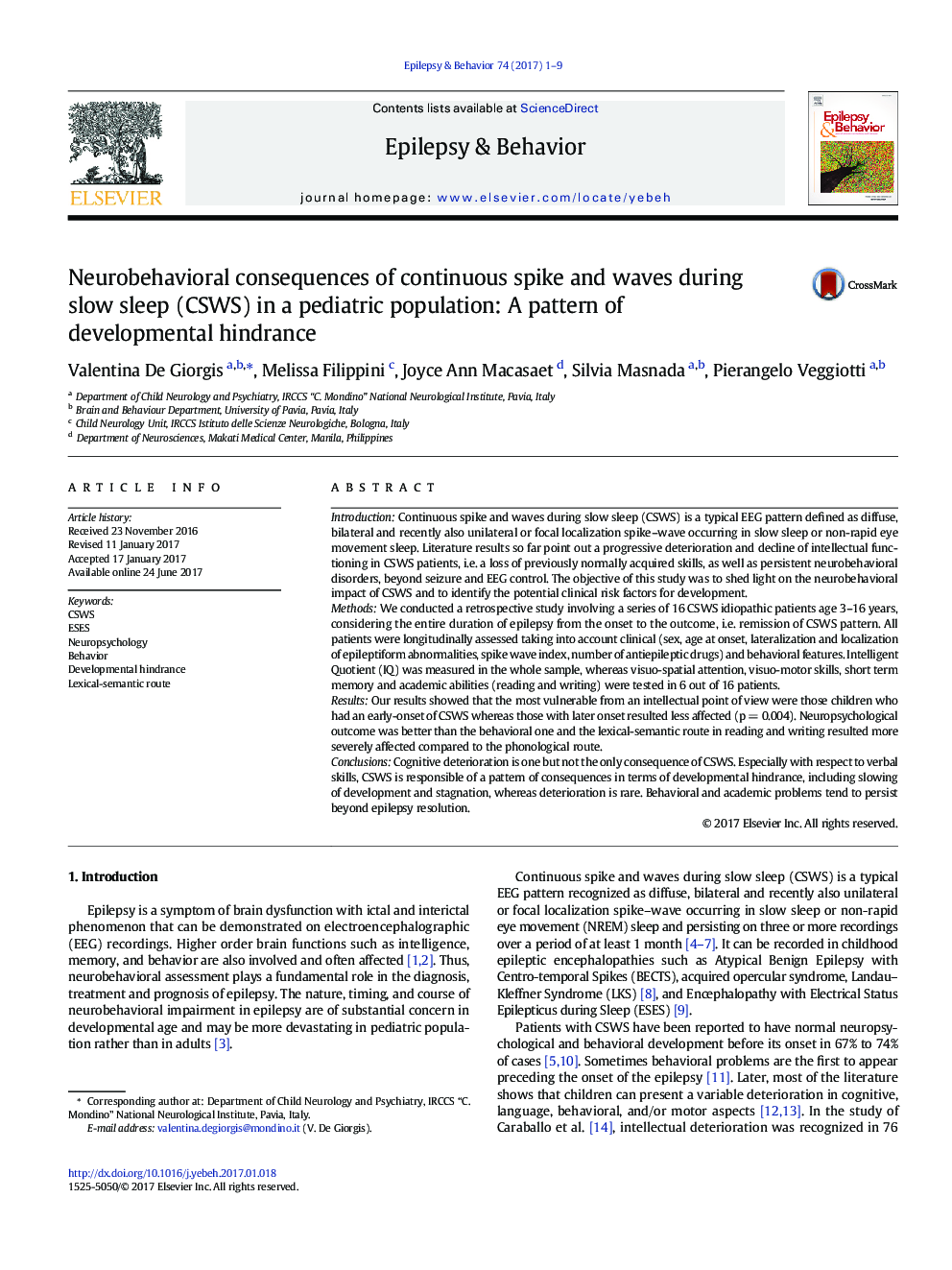| کد مقاله | کد نشریه | سال انتشار | مقاله انگلیسی | نسخه تمام متن |
|---|---|---|---|---|
| 5628206 | 1579819 | 2017 | 9 صفحه PDF | دانلود رایگان |

- Long term clinical, behavioral and neuropsychological follow-up of 16 CSWS patients of idiopathic origin
- Age at onset is predictive for cognitive evolution in CSWS patients.
- Neuropsychological outcome was better than the behavioral one.
- CSWS cause a pattern of consequences in terms of developmental hindrance, rather than deterioration.
- Neuropsychological tests slowed a more severe affection of the lexical-semantic compared to the phonological route.
IntroductionContinuous spike and waves during slow sleep (CSWS) is a typical EEG pattern defined as diffuse, bilateral and recently also unilateral or focal localization spike-wave occurring in slow sleep or non-rapid eye movement sleep. Literature results so far point out a progressive deterioration and decline of intellectual functioning in CSWS patients, i.e. a loss of previously normally acquired skills, as well as persistent neurobehavioral disorders, beyond seizure and EEG control. The objective of this study was to shed light on the neurobehavioral impact of CSWS and to identify the potential clinical risk factors for development.MethodsWe conducted a retrospective study involving a series of 16 CSWS idiopathic patients age 3-16 years, considering the entire duration of epilepsy from the onset to the outcome, i.e. remission of CSWS pattern. All patients were longitudinally assessed taking into account clinical (sex, age at onset, lateralization and localization of epileptiform abnormalities, spike wave index, number of antiepileptic drugs) and behavioral features. Intelligent Quotient (IQ) was measured in the whole sample, whereas visuo-spatial attention, visuo-motor skills, short term memory and academic abilities (reading and writing) were tested in 6 out of 16 patients.ResultsOur results showed that the most vulnerable from an intellectual point of view were those children who had an early-onset of CSWS whereas those with later onset resulted less affected (p = 0.004). Neuropsychological outcome was better than the behavioral one and the lexical-semantic route in reading and writing resulted more severely affected compared to the phonological route.ConclusionsCognitive deterioration is one but not the only consequence of CSWS. Especially with respect to verbal skills, CSWS is responsible of a pattern of consequences in terms of developmental hindrance, including slowing of development and stagnation, whereas deterioration is rare. Behavioral and academic problems tend to persist beyond epilepsy resolution.
Journal: Epilepsy & Behavior - Volume 74, September 2017, Pages 1-9